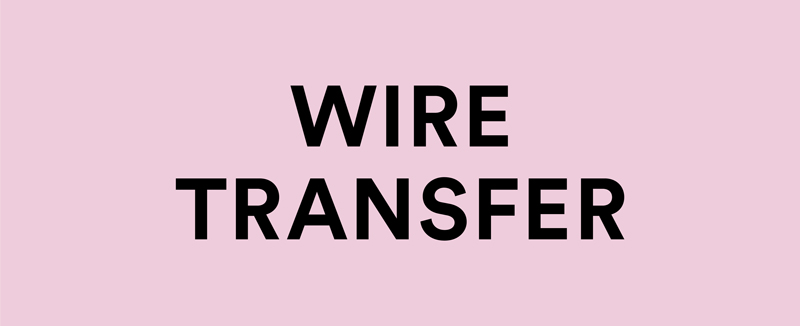It is snowing when I get to Umberto Eco’s house in Milan. It’s February, and his latest book, Numero Zero, published by Bompiani at the beginning of 2015, shot to the top the best seller list almost instantly. There have been several reviews, and Eco has given more interviews than is his wont, if I remember correctly. So what can I ask him that hasn’t already been asked? I had read the proofs before the book came out, but we weren’t able to find a date to meet before today. I’m excited to meet him. Eco is famous throughout Italy and the world over, perhaps the best-known living Italian author today. Essays, articles, whole books have been written about him, and yet there are many things about him that escape his readers and critics. One thing I want to find out more about is his double role as essayist and fiction writer. Another is the way he works. Then there is the trifling matter of having written a book at the age of 82. No small feat, in anyone’s book. So this is where I start my interview: sitting on his sofa I ask him about Numero Zero.
What gave you the idea for this book?
I’ve been writing articles criticizing journalism since the 1970s. In the 1990s a fellow university professor, Carlo Scognamiglio, was made President of the Senate and he invited me to give a talk on the ‘Vices and Virtues of Italian Journalism’, which was attended by several newspaper editors. The lecture was highly critical, a ruthless analysis, followed by a debate with a journalist from Corriere della Sera, Piero Ottone, which was even less sparing. Ottone took the Anglo-Saxon view that facts can be separated from opinion, while other participants and myself claimed journalists were unable to distinguish the two. This has always been a hobby horse of mine, especially in my essays.
Does this mean a book comes about as the result of a theme you are passionate about?
Not exactly. But let me try and answer the previous questions. I had started collecting vague ideas about a story set in a newspaper office. This was before I wrote Baudolino. I then got taken over by other ideas and other prospects and left this one to hibernate. Once I reached the age of 81-82 I started to wonder whether I was still able to write a novel. I felt as though I had exhausted whatever ideas I’d had, but then this one popped up. Some sharp reviewers have pointed out that I re-use a lot of material I have already written about. I started with the principle that these ideas were anyway mine, and that anything that gets published is forgotten after a week, so I could recycle previous material. Newspaper articles have an incredibly short shelf-life. I decided to write about the editorial office of a second or third-rate newspaper.
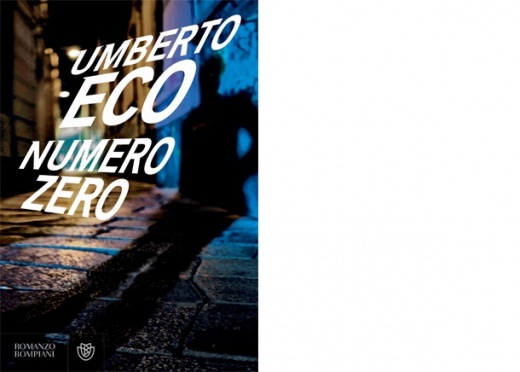
Numero Zero, 2015.
How did the characters emerge?
They come from typeface names. They’re all there if you drop the font box in Microsoft Word, except Braggadocio which is no longer on the list. I love that name. At the time I didn’t even know there was an English character with that name, a ‘Braggart Soldier’ type of character. I wanted to put together a group of people that had nothing to do with one another. I built the group up bit by bit, and started with some negative examples of journalism that I had direct experience of, such as mudslinging, the magistrate with the scarlet socks… I was a victim once. Some paper wrote that I had been seen in a Chinese restaurant with an ‘unknown person’. I suppose the journalist didn’t know him but I did. Actually he was a friend, so he wasn’t some mysteriously unnerving character, and the restaurant was right here on the corner. Mudslinging means you don’t write that so and so is a pedophile; you write that so and so owns a blue sweater, and if you put that blue sweater into the right context suspicion starts to gather around you.
I wanted to understand how you work, how you write. You have a name. You paint a portrait. How does the character come to life on the page?
Usually my novels start with an idea that takes place at a certain time and in a certain place. The period may be the seventeenth century, as in the Isola del giorno prima (Island of the Day Before, Harcourt, 1995). As far as place is concerned, I’ve worked on geographical maps, and I’ve even drawn a ship piece by piece, including the interior. I might take a year or two. I start with a seminal idea, a seed that is planted: a poisoned monk, a boy playing the trumpet in a cemetery, a watch picked up in a shop that tells universal time. Then, once I have planted the seed and perhaps invented one or two characters and given them a name, the context fills out of its own accord. You sit down like Joyce’s God and file your nails and the novel writes itself. When I set the scene with a character called Braggadocio, I had no idea that this character would be dealing with Mussolini’s death. In the case of Numero Zero the theme or topic I wanted to focus on was second-rate journalism, and I was interested in Milan, a foggy and secretive city. I started reading all the books I could get hold of about the hidden Milan and I discovered via Bagnera which I’d never heard of, just as I’d never been inside the church of San Bernardino alle Ossa, which I then started visiting. That was how I came up with the idea of using the character Braggadocio to span twentieth- century Italy since Mussolini, as he travels from mysterious street to mysterious street and discovers all the mysteries of our country. He did it all himself, I would say. If I hadn’t invented a newspaper office with a paranoid character, there would have been no story of the kind at all.
The sensation you get reading Numero Zero is that the books starts slowly, like an engine in first gear, and gathers speed as it goes on. The beginning, printed in a different font, talks about a tap with no water coming out of it, and about the university adventures of the protagonist, who is also the narrator. Then Braggadocio comes onto the scene and the book gathers speed. Then there’s the other character, Maia, whose relationship with the narrator gives another kind of rhythm to the events. It takes a while for the book to gather momentum.
That’s exactly it. And there’s more. The opening with the water that didn’t come out of the tap was once the beginning of Il Pendolo (Foucault’s Pendulum, Secker & Warburg, 1989). A friend whose views I trusted read it and as a result I eliminated the scene, literally threw it away. I have always regretted throwing away that bit of the story, because I really liked the idea of water not coming out of a tap. So when I decided to write this particular story I went down into the cellar and started opening up my old boxes until I found the old text. I re-edited it a bit and that was what I needed for a slow opening, because it represented the slow way I had started working on the novel. Then the story starts getting faster. Let’s say that all my 600-page novels have been Mahler symphonies, with citations. This novel, on the other hand, is a piece of Jazz, a riff by Charlie Parker. I make it very clear to my translators when they want to add things. I tell them: you need to keep the jazz rhythm up in this novel. Ta-Tata. A jazz piece opens with a slow introduction, and then it gains the rhythm it is supposed to have, faster and faster.
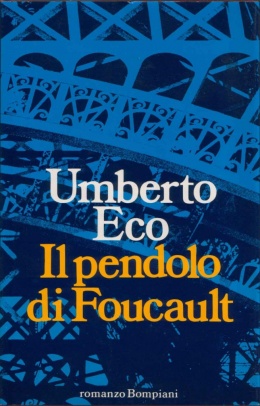
Il pendolo di Foucault, 1986.
What about the university memories then, the story about the adjuncts?
That was all part of the chapter I threw away.
I get the feeling there’s not much connection with Colonna, the narrator, the journalist who translates from German.
I think it serves the purpose of filling out this failed character. Did you feel there was something missing?
The book starts with an atmosphere that is reminiscent of a thriller, and anyway university memories are almost a constant in your books.
The university hardly ever features in my books. In ‘Foucault’s Pendulum’ there are editors in a publishing house.
That’s true, but you feel that the characters cultivated their manias at university, or that the relationships were established back then. Then you think the story is going to go in that direction.
I had the idea of one or two friends who had studied German but who had never graduated, and worked here and there as consultants. That’s where I started because I needed a character who was going to launch a second-rate newspaper, so he couldn’t be modeled on our prize journalists like Scalfari or Montanelli. I needed a failure. A failure as an editor, as a ghostwriter, as a husband, who goes to work in a newspaper that doesn’t exist, and then he makes up for everything by falling in love. I think the story of a failure is coherent. Are you saying that since I’m not a failure I haven’t been able to write it properly?
Colonna realizes his potential, sets up with the young journalist he met in the false news office at the age of 50. He’s a post-failure. The glimpse of his abilities at the beginning of the book, the fact he knows how to translate from German, and other skills that are not particularly relevant to the narration, are all left hanging there in the opening section you re-used from a previous novel.
But Colonna works behind the scenes, giving other people ideas. Like every self-taught person he is incredibly knowledgeable, as I explain. Autodidacts are always more erudite others.
Why do you write about failures in Numero Zero and in ‘Foucault’s Pendulum’?
Because in ‘Foucault’s Pendulum’ the three editors could have been editors at Einaudi, but in fact they are editors at Vanity Fair.
The theme of failure features quite heavily, together with that of paranoia, conspiracy…
Some authors write about nothing but sex, I write about failure.
Why?
Because authors who write about sex have very little sex in their lives, and authors who write about failure experience very little failure. Anyway, we all choose our mission in life. Since I am often disgusted by the paranoia that surrounds us, I’ve chosen to fight it. Other people pick other battles.
You can’t deny that you feel a certain pleasure in writing about conspiracies and plots.
Of course I do. Poe enjoys writing about mysteries and blood feuds. Houellebecq enjoys writing about sex on very page. Maybe he finds extreme pleasure there.
Deception and fabrication is another of your favorite themes.
I’m reading some essays about my work for a book that is due to come out in the US. It’s a collection where authors have to write a philosophical autobiography, then 25 people write an essay about the author, and the author has to answer each one of them. The project started three years ago and will probably go on two more years. So far I’ve noticed that many of these essays focus on one line in my 1976 Theory of Semiotics where I claim that semiotics is more than anything else a theory of fabrication. So it’s clear why I focus on what is false. It’s another of those themes that has accompanied me all my life. There’s no point in studying the function of language when I’m telling the truth, when I say something like “The light is on in this room”. What is important is to understand the function of an untruth, such as ‘There’s a ghost behind you”. That is where language creates new worlds rather than reflecting them. The problem with fabrication is its historical function. I once wrote an essay on the force of deception. I find the whole question really interesting. Every author has obsessions that they drag through life: for some they are the memories of childhood, like Proust; for others, like Mann, intellectual maladies.
You used the word ‘ghost’ just now. This book is full of ghosts. Mussolini for example. Ghosts are also memories that live inside you. What is a ghost in your view?
I’ve never thought about this theme. It makes me think of a strip cartoon from the 1930s: “The Dibensò Ghost”. The name imitated a Bolognese accent, and it was always on the last page of the Juventus albums. But no, I’ve never really been interested in ghosts, except when I bought a house in the countryside and I was convinced there was the ghost of Uguccione della Faggiola. I even created a ghost with a sheet and a stick. Nobody has ever asked me this before.
There are people who are inhabited by ghosts. Take the failed love affair of the narrator- protagonist in Anno Zero. Then there’s the ghost of Mussolini which the paranoid Braggadocio sees.
Well if you put it that way I could say that the whole of La misteriosa fiamma della regina Loana (The Mysterious Flame of Queen Loana, Harcourt, 2005) is a ghost story, or that ‘Foucault’s Pendulum’ is a story of the phantasmatic brainchildren of fools.
Psychologists say that paranoia is the only mental disease that is contagious, while schizophrenia is not. Let’s say there’s not just the force of deception, but there’s also a ‘disease’, a social factor.
Well there’s always collective paranoia. People have been talking about it since Popper.
What seduces you about this, to the extent that you engage yourself with it?
The fact is that I’m not superstitious at all and I’m not one to sulk either. If something upsets me, or if it feels odd, or I simply can’t explain it, I tell myself it’s my mistake, that everything is fine… and that’s how I survive without getting paranoid. This is why I’m fascinated by my paranoid protagonist. Something that is totally random for me is the basis of a total re-reading of reality for him.
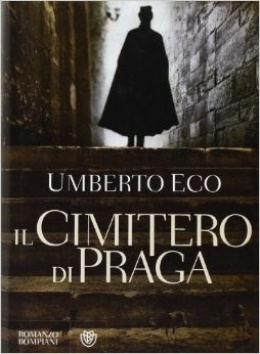
Il cimitero di Praga, 2010.
And yet this would appear to contradict – to go back to the Theory of Semiotics – the fact that everyone possesses a structure for reading reality. You are not distracted, you are highly structured, and this book shows that you pigeonhole paranoia, and make it part of your strategy.
Giving a structure to your discourse does not mean you are paranoid, it just means you are rational or at least reasonable. Someone who is paranoid creates delirious structures out of things that are disconnected. And the world they live in is structured by their paranoia more than by any other element. What is the Islamic State Isis if not a collective form of paranoia? We are conditioned by the presence of mass paranoia. What was George Bush thinking when he invaded Iraq, convinced, with the support of the whole Neo-con movement, that Saddam Hussein was hiding weapons of mass destruction? This too was a form of paranoia: in fact the information was false. What was Hitler if not an example of colossal paranoia? We are more obsessed by paranoids than by non-paranoids. My reaction to this is to narrate this world.
I don’t think there is one character in your book who is normal.
Do you think any characters in any book are normal as you say? Lucia Mondella perhaps, in Manzoni’s ‘The Betrothed’.
What about her fiancé Renzo then?
No, he’s just a character waiting to pick a fight, who gets into trouble. No, Renzo Tramaglino is not normal. Maybe Agnese is a little bit normal.
What about women? In Numero Zero, Maia, the main female protagonist, seems more normal than the men around her.
Yes, she is. I was irritated by a critic who wrote a book about my narrative style and claimed there was no room for women in my novels. Women in my books are bearers of wisdom, like Lia in ‘Foucault’s Pendulum’.
In Numero Zero Maia is a very slight character.
She’s sensible, and has a sense of humor. She surrounds herself with failures, and her life hasn’t exactly been a success either. Her character is as small as her breasts are.
Small but pert, write that down.
Correct. I will.
She’s slight. In fact the only fat person in the novel is Braggadocio.
I didn’t concentrate on the characters’ weight. All I can say is that he has a big head.
After the slow beginning the novel takes off and ends very rapidly. You finished it off, but you could have kept going.
You sit there and wait. The novel decides for itself when to come to an end. A story of this kind could only end that way, with this aura of pessimism. Italy will get worse, we sit and watch as it worsens. In the old days it would have been called an exposé.
Another theme alongside paranoia, perhaps linked to the theme of paranoia, is that of the commonplace. The book is full of clichés.
Of course…
Why of course?
If you put out a second-rate newspaper it’s going to be full of fixed expressions, all I’m doing is photographing reality.
Where do these clichés come from? Are they a part of our language?
They are of course part of our language, the product of lazy language usage. They are formulas, clichés as you call them. You hear them all the time, in the newspapers, on television. They are fixed expressions.
You’ve always specialized in turning fixed expressions on their head.
I’ve done it many times, yes. In the 1973 children’s book, Ammazza l’uccellino, in the articles I use to write for the left wing daily Il Manifesto about the stupidity of school text books. I’m clearly a realistic writer. There are authors who can describe laborers in the Abruzzi region, and there are others who can depict producers of clichés.
Are you attracted by clichés?
I’ve always been interested in stupidity. It’s another of those themes I’ve devoted time and attention to. ‘Foucault’s Pendulum’ is about stupidity. I’ve always been fascinated by it, and I’m jealous of Carlo Cipolla who wrote a magnificent essay on the subject (Allegro ma non troppo, Bompiani, 1988). I try and analyze what the basis of stupidity is, using formal logic to work out the point up to which stupid people reason exactly like the others, before they make a tiny syllogistic slip which makes what they are saying seem reasonable but in point of fact stupid. Furthermore, I’m basically of the persuasion that stupidity is not an exception that erupts out of a landscape of normality, but that it is the case that everyone is stupid to a degree, and that some are less stupid than others. Like myself, for example.
Stylistically, how would you classify this novel?
I told you. It is not a Mahler symphony, like my other books, but a piece of Jazz. That’s why it’s only 200 pages. No jazz riff lasts four hours.
I accept that, but it is written differently from your other works, not just in the sense of the Jazz metaphor.
There is another interpretation which one of my French publishers gave me. Relata refero, although it gave me great pleasure. He said: “You are 83 years old and the book reads like a book written by a much younger man.”
Where does the publisher see youthfulness? In the speed?
Yes, that and perhaps in the humor. I don’t know. I tell it I was told. Maybe it’s just the weakness of old age, like when you are on the edge of death you call out to your mother. Maybe as you get older you get lighter rather than heavier.
It could be the fact that you appropriated a journalistic style. This could have given the writing a sense of speed and youthfulness, don’t you think?
I am mimetic. If I write a book set in the seventeenth century, I write in a Baroque style. If I’m writing a book set in a newspaper office, I write in Journalese.
Did you create this mimesis by using your own journalistic pieces?
Yes. In ‘The Name of the Rose’ (Harcourt, 1983), I was copying the style of Medieval chroniclers. Some critics said it felt more like newspaper reporting because there were no metaphors or linguistic embellishments. But that is how Medieval chroniclers used to write. Rodulfus Glaber wrote exactly in this style in the years around 1000.
Is Numero Zero, then, a mimesis of journalism in the 1990s?
I used the rhythm and language of a newspaper because that is what the characters required. Writing about a Baroque protagonist I spontaneously adopted the style I had studied at the university of Turin with the critic Giovanni Gètto in his lectures on the Baroque writer G.B. Marino, that I had somehow absorbed and memorized. I have always said, first build your world, and then language follows. In fiction Rem tene, verba sequentur (Grasp the subject and words will follow). Poetry is the only genre where verba tene, res sequentur (Grasp the words and the subject will follow).
There are some fiction writers who put language first aren’t there?
Yes there are. In fact they write bad novels. Or non-novels, like Joyce’s ‘Finnegan’s Wake’, which is not a novel.
There could be a compromise. What about Gadda, for example? He started with words.
I’m not sure that what is definitely a real novel, like Pasticciaccio (That Awful Mess on the Via Merulana, NYRB Classics, 2007), didn’t actually start with an intrigue and then the words followed on from that. Gadda is certainly a writer for whom linguistic invention counted more than for Tolstoy.
In your view does linguistic invention count for less?
What I’m interested in is narrating a story and building up a world, a possible world. It’s a matter of cosmology.
Is this because you are a philosopher, a philosopher of language, a semiotician? Or has it always been the case? Is this your style?
I’ve never been interested in linguistic embellishments. I’ve always wanted the language to fit the theme. The language of Apocalittici e integrati (Apocalypse Postponed, 1994) is different from that of Opera aperta (The Open Work, 1989), which deals with much more complex and brain-racking topics.
Complex and brain-racking? Do you mean the use of a certain kind of language?
A more technical language, influenced by the works of art that I was looking at. I think that if someone decided to analyze the language of these two books written almost contemporaneously (though the latter came out two years later) they would find that the language adopted in Opera aperta is more appropriate to Opere aperte than that adopted in Apocalittici, which tried to fit in with the language of the television programs I was writing about.
You are a mimetic writer, you say. Mimetic of what exactly?
I am mimetic because, contrary to what you have been saying, language plays an incredibly important role in my writing. I’m a chameleon that adapts to the language of the world created in a particular book, and my language changes in each book. The language of Queen Loana is very different from Baudolino’s language. First there is the world, then language, but language develops as a kind of mimetic invention. This gives me great pleasure but it is also a great deal of work. The critic Maria Corti appreciated my shift in register in ‘Foucault’s Pendulum’ compared to ‘The Name of the Rose’. In ‘Foucault’s Pendulum’ I used the mimetic language of a second-rate publisher like Belbo, and the mimetic language of an occultist. I have also invented inexistent languages in other novels, such as Salvatore’s in The Name of the Rose, and, in ‘Foucault’s Pendulum’, the language of a Frenchman who speaks a French-contaminated Italian. In Isola del giorno prima Father Kaspar speaks a form of pseudo-German, which got a lot of critics worked up.
So would you say your identity as a fiction writer and as an essay writer lies in your register shifts?
It lies in the chameleonic nature of my language.
Under the guise of the chameleon, what is there? Who is Eco the fiction writer?
Who knows?
You must have some idea?
No, I don’t. That’s why I write. So I can find it out.
That’s already an idea of one’s role as a writer.
I’ve already told this story many times. Luigi Pareyson, a professor I had at university, was becoming increasingly conservative. He once said to me: ‘We each have only one idea in life and all we do is develop that idea.’ And I said to myself: What a reactionary thought!’ As I get older I’ve realized that I too in my life have developed one basic idea. The trouble is I don’t know what that is. So I write to find out what it is. If I find out before I’m on my deathbed, I’ll tell you.
Another thing that is striking about your books is the way you use time, as well as the way you use space. The index of Numero Zero gives you the impression that time is quite important.
I am Aristotelean in this novel. There is total unity of space and time.
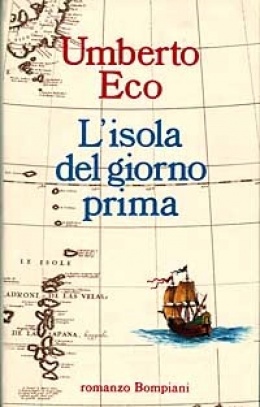
L'isola del giorno prima, 1994.
But the opening precedes this unity. The novel starts on June 6, 1992. Then the rest takes place on April 6. How did this shift in time come about?
I was writing a novel about the events of 1992. Again, the world I had built obliged me to keep the time frame very tight. The novel then talks about Mussolini’s death by firing squad in 1945, and that was 60 years before, but these 60 years flash by in the space of a morning for the protagonist. In fiction as in cinema I love flashbacks.
But between the events of 1992 and the last hours of Mussolini’s life in 1945 there’s nothing, no chronological or thematic link whatsoever.
There’s the reconstruction of a madman.
It is still the construction of a possible world, as you say.
What is so strange about that? Proust locked in a cork-walled room, look what he puts in. Don Isidro Parodi locked in prison imagines possible worlds that coincide with the real world. Sherlock Holmes does everything in his sitting room, except for a few outings. It’s not a new narrative technique. It is really quite common.
It would seem that you used it in order to hold together the jazz riff with a few dates to provide the beat.
I play jazz every now and then with Gianni Coscia on the accordion and me on the recorder. Dates and times are to help the reader. If I had written ‘at the time of the 63 group’ it would have confused readers. In Numero Zero it didn’t feel right. Like in the Cimitero di praga (‘Prague Cemetery’, Houghton Mifflin Harcourt, 2011) I use different typefaces to help readers orient themselves in a complicated development of the time frame.
So you’ve changed technique since the Gruppo 63?
No, because I didn’t write experimental novels at that time. But if there hadn’t been that whole debate I probably wouldn’t have written it. While Manganelli and Sanguineti saw ‘The Name of the Rose’ as a betrayal of the principles of the literary group, for me it was the natural evolution of a different way of conceiving narrative fiction. At one point a minor poet who belonged to the group wrote a book called Coazione a ripetere (repetitive compulsion) that repeated numbers for 200 pages. It’s like exhibiting a white canvas. You can’t do anything more than that, and you have to go back to actually painting something.
In the evolution of the books you have written since the 1980s, do you think you have maintained a certain coherence in terms of your narrative technique?
I would say so. Probably for lack of imagination. If it weren’t the case I could have written different kinds of books. Take Joyce who first writes ‘The Dubliners’ then ‘Ulysses’ then ‘Finnegan’s Wake’. There is an evolution. If you didn’t know, and you read the first and then the last book, you would never think it was the same author.
Earlier you said you were a realist.
It was just an expression. I’m not Verga.
So how would you define your realism?
By the fact that I write about our world, that I write about real events. In ‘Foucault’s Pendulum’, in ‘The Name of the Rose’, when critics thought the Dolcinites were the Red Brigades.
Weren’t they?
When I was writing at the time I realized that certain patterns repeated themselves in history. This is my form of realism. I’m not saying like Verga “Padron Ntoni is blowing his nose”, or as the humorist writer Pitigrilli (a pseudonym for Dino Segre) said: “If people blow their noses it’s called realism. If they wear white shirts and perfume it’s not realism”. I’m exaggerating of course. There are many forms of realism. Some writers want to tell you about how Sicilian fisherman live, and others pretend they are telling you a different story but they are actually writing about your reality. Manzoni wrote a story set in the seventeenth century but it was actually about his time. That is realism as I see it. Manzoni’s not Verga’s. I always refer to Manzoni because he is a basic model for me. I want to tell a story like Manzoni did. That’s why there’s very little sex in my novels. As he said, there’s too much of it around for me to have to write about it.
In Numero Zero there’s no manuscript, there are no other Manzoni-like expedients.
Well, if I’d used the expedient of a manuscript I would have been parodying myself. The idea of a manuscript is actually a cunning trick of realism. The writer wants to talk about something that is close at hand, but pretends to go back in time to find it. If you like it is a form of “oblique realism.”
1992: Berlusconi had not gone into politics yet.
It worked well because some things had already happened, as I write in the final page of the book, and it was clear how things would turn out.
Is this a crack in time?
No, it is a moment when things looked as though they would turn out differently. Everyone thought the Clean Hands campaign would change things. Everyone thought corruption would come to an end, but corruption simply found new forms. 1992 was a moment of transition.
Was ‘Prague Cemetery’ also a point of transition?
No, I don’t think so. That is a story about a racist obsession.
I feel as though your novels often identify points of transition.
If that’s the way you want to see it, let’s say it is the case. The fourteenth century of ‘The Name of the Rose’ represents the crisis of Scholastic philosophy and the beginning of a proto- Renaissance. ‘Foucault’s Pendulum’ does not represent any shift. ‘The Island of the Day Before’ maybe reflects a moment of passage when the boy starts to imagine things philosophers might say but had not yet said. Take the austral sky that makes you think about Borromini rather than the cupola of Santa Maria del Fiore. That is a historical transition too. There is nothing in ‘Baudolino’. Nor is there a shift in ‘Queen Loana’ because two stories about the protagonist blend together, her infancy, Fascism and the Resistance movement.
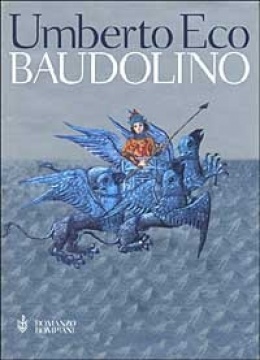
Baudolino, 2000.
‘Foucault’s Pendulum’ is a novel-crucible. There are many things you do not develop later on, and that is where Numero Zero comes in.
I think ‘Foucault’s Pendulum’ is my most important novel, at least it is for me. In fact I put an infinity of things into it. On the one hand, there is the whole world of occultism, but on the other there is the feuilleton effect, and the re-working of ancient literature. It could have developed along many different lines. After all, a seed from Pendulum, with the feuilleton and the Jesuits, grew into something different in ‘Prague Cemetery’. I haven’t developed many of the things that were in ‘Pendulum’, such as the epiphany theme of the trumpet in the cemetery.
When you wrote Numero Zero weren’t you afraid of coming too close to contemporaneity?
Everyone thinks I write historical novels. They even thought ‘Foucault’s Pendulum’ was historical because it evoked the Templar Knights. It is actually set in Milan in the 1960s and 80s. ‘Queen Loana’ is set in the present day with memories of the Fascist period. I’ve written at least three novels on contemporaneity, including Numero Zero. Three against four. If I write a novel when I’m 100, it will be four books set in the present against four in the past.
Don’t you have another story in mind?
Usually it takes me six or seven years between one novel and another. Come and see me when I’m 90. When I finished ‘The Name of the Rose’ I had nothing else in mind. Then I said to myself: what else might inhabit my memory? That’s when I thought of the episode of the trumpet in ‘Foucault’s Pendulum’. But how could I start with a pendulum and end up with a trumpet? It took me eight years to find the solution.
How long did you take to write Numero Zero?
Not long at all. Novels like ‘Prague Cemetery’ and ‘The Island of the Day Before’ require my reading shelves and shelves of books. For this novel everything was in my recent memory, and for Mussolini’s death all I had to do was go and find the Partisan Pedro’s memoires, or the autopsy report. It was all there. I took a year in all.
Do you usually spend a lot of time re-writing and editing?
Usually yes, but this one less. I have creates of papers for the other novels.
Why did this one take less editing?
Perhaps because I had fewer stylistic problems, and fewer issues with manipulating an immense amount of historical material. I had fewer cuts and fewer things to do to the text. Or maybe because I was at a stage when the cantabile style I was writing in came naturally and I accepted it as it was. Computers allow you nowadays to write and rewrite very chapter at least ten times. You hardly notice you’re doing it. If I go back and look at re-writings of my previous novels I realize I made a great number of changes. For ‘The Island of the Day Before’ I set myself the challenge of only using words and terms that would have existed in the Baroque era. That led to a great deal of research because I found out that this or that term was not in use at the time. Then I would go and read Daniello Bartoli and learn that he had actually used the term. In Maria Corti’s manuscript collection there are hundreds of sheets of my manuscripts with lists and lists of words, names of flowers, whatever. Writing a novel set in 1992 is another matter. A Mini Morris is a Mini Morris and a Saab is a Saab.
Braggadocio’s catalogue of cars that he wanted to buy but never did.
It’s one of my files. I used it when I needed to buy a new car.
So you used private notes here too?
I managed to find a table that I had made of cars for sale that were worth looking into. The novel takes place in 1992, and my notes were from 1994. I thought that two years couldn’t have brought about so many drastic changes in types of car.
Did you use your ‘Bustine di Minerva’ Espresso magazine articles too?
Of course I did. I used other articles about journalism too. It’s my right.
Yes, it is. You have often worked by building and then destroying articles you have already written. Is it a technique you would say is peculiar to you?
Yes, I love making collages.
Even when the writing is more complex, such as in ‘Pendulum’?
My taste for collage is a taste for making certain characters say certain things they actually said. One particularly stupid critic after ‘The Prague Cemetery’ said I had copied from Giuseppe Cesare Abba. Abba is a character in my book, and I put the words in his mouth that he had actually written in Da Quarta a Volturno. I wanted to be historically accurate. I’ve done this in all my novels.
Is collage a modern or post-modern technique, in your view?
I may have been influenced by both, and by max Ernst. It is quite typical of modern literature.
In Numero Zero, art, and the visual aspect of your work, is linked to places and to specific streets.
Yes, I’ve walked around a lot in the old Milan.
There are no grand visions, no artistic objects.
I suppose the characters didn’t possess any.
They are a little grey.
True.
Why? Braggadocio himself, the paranoid, he is rather a grey character too.
I remember the television satirical program, the Iene, asked senators going into the parliament to vote for the President of the Republic who the first president had been. Many of them said De Gasperi. These people are grey, and they have no memory.
Is this ignorance or stupidity?
This is yet another theme my books tackle. The flattening of everything into a one-dimensioned present, with no dimension for the past. If you ask people about historical characters it is painfully obvious. Anyone under 30 may even say that Hitler met Mussolini in 1970.
The theme of student goliards is always present in your books. Colonna is introduced as a student at the beginning of the novel. They remain former students all their lives.
Yes, I suppose they do. I write about people who have read books.
Are they your former students?
No, they are all me. I didn’t go and fight in the Foreign Legion, and so I write about things that are part of my past, about books basically. About people who live in a certain cultural environment. I wouldn’t know how to write a history of a factory worker or the autobiography of a prostitute, like Daniel Defoe. I wouldn’t be able to. Madame Bovary ce n’est pas moi.
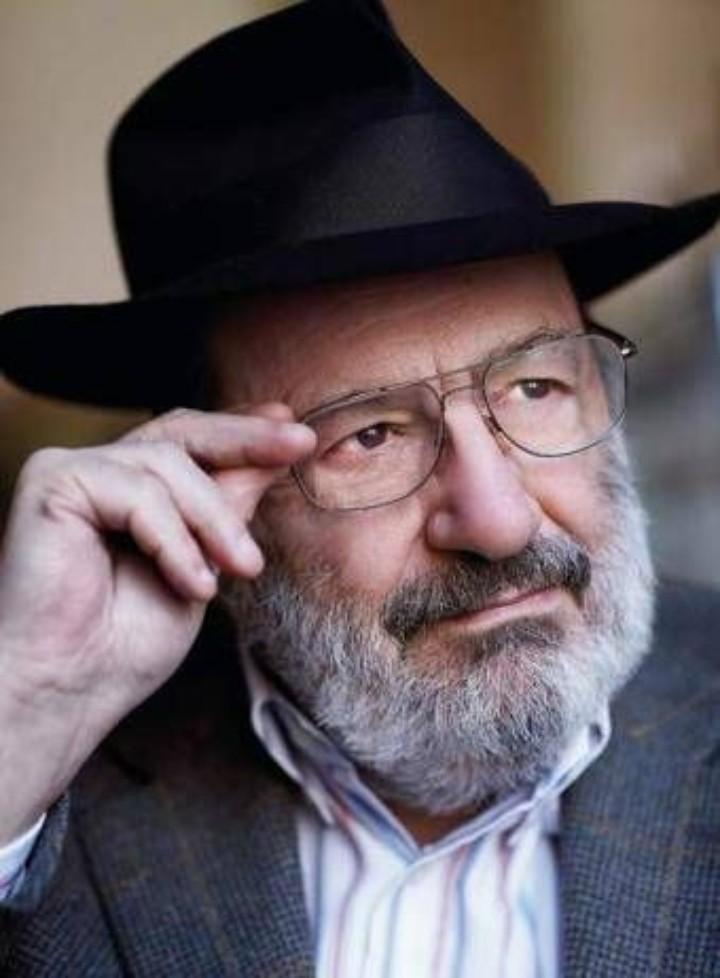









 Since 2011
Since 2011 

